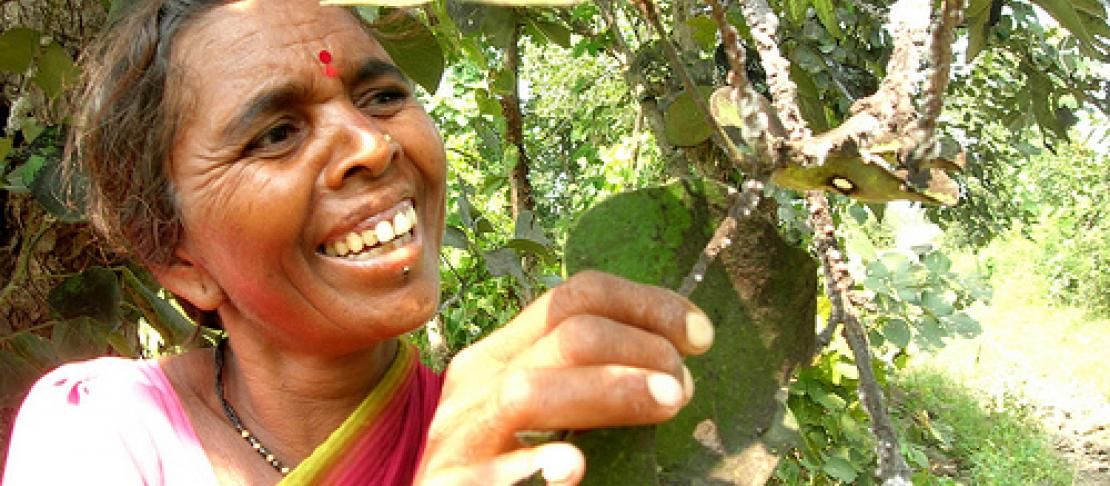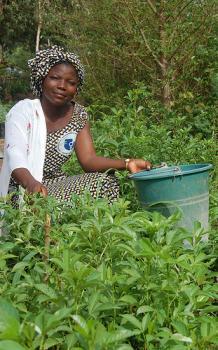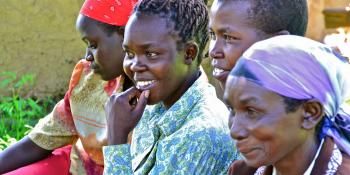New paper outlines gender strategy for pro-poor mitigation research

CCAFS is currently exploring ways to improve women’s role in climate change mitigation activities and decisions. In the light of this, our Pro-poor mitigation research theme has released a Working Paper, “A Gender Strategy for Pro-Poor Climate Change Mitigation”, which examines gender-related problems and opportunities associated with low emissions agricultural development.
“The aim of the paper was to provide a framework for gender research and stimulate discussion about actions needed in climate change mitigation work,” said Lini Wollenberg, Theme Leader and co-author of the paper. “The hope is that it will inform future low emissions agricultural development investments, from the village to policy level, in ways that benefit men and women equitably.”

“There is a growing momentum in the development community, acknowledging gender in the context of climate change,” said David Edmunds, co-author of the Working Paper, “and the distinctive knowledge and contributions provided by women and men to mitigate and adapt to such changes.”
“CCAFS is leveraging that momentum to bring visibility to women’s contributions to climate change mitigation and on the ground practices,” he continued.
Unique challenges and opportunities for transformative change
Transforming gender dynamics takes time. Efforts to reduce inequality should be driven by both men and women, and will require persistent commitment, reflection, and encouragement from relevant stakeholders. The paper identifies three strategic challenges to reach gender equity in mitigation projects:
- Mitigation incentives linked to carbon markets involve technologies and institutions that can impose special burdens on poor women that are marginalized by global market infrastructure and institutional networks;
- Economic and agricultural science models help drive mitigation analysis and policy recommendations but often do not recognize gender differences;
- Top-down planning, legitimated by the climate change "crisis narrative", reinforces inequitable power dynamics.
These problems can be addressed through collective action, alliances and inclusive and reflective decision-making. The gender strategy identifies research needs to shape that process:
- Political ecological analysis to identify the effects of institutional inequalities on the efficacy of greenhouse gas (GHG) reduction strategies;
- An analysis of women’s innovations related to low emissions agriculture and adaptation to climate change to bring visibility to those efforts, understand what enables or discourages them, and to scale them up and out;
- Gender disaggregated research to identify women’s existing and potential contributions to emissions reductions, livelihoods, and food security.
Valuing women’s knowledge can jointly lead to new technologies, management practices, organizational forms, and political strategies that encourage low emissions agricultural development and transform gender dynamics. Because the truth of the matter is, women are strong and creative drivers of change, and their involvement is key to ensure success in mitigation project.
Read the Working Paper here: A gender strategy for pro-poor climate change mitigation. David Edmunds, Jade Sasser and Lini Wollenberg. CCAFS Working Paper no. 36. 2013.
Emily Boone is a Research Project Assistant for the Pro-poor mitigation research theme and Cecilia Schubert works with Communications at CCAFS. The theme will facilitate a workshop on women’s innovations building on the ideas presented in this paper, on April 28 – May 1 in Phnom Penh, Cambodia. Learn more about our gender research here.



